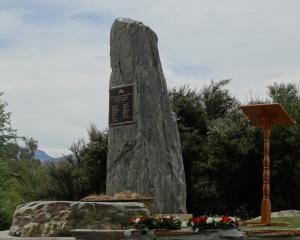They are said to have sought a haven there in order to avoid the risk of capture or destruction by the German cruiser Leipzig which, having replenished her coal bunkers a few days ago in San Francisco, is assumed to be in dangerous proximity to them.
It will be remembered that about the time at which the Niagara was due to depart from Vancouver it was reported that she would in all probability trust to her speed to elude any enemy's warship which might come across her track.
But although she is the fastest merchant vessel that trades to New Zealand, her speed is not equal to that of the Leipzig.
This cruiser, which has latterly been attached to the German squadron stationed in Chinese waters, has a speed of 23 knots, and an armament of ten 4.1-inch and 14 machine guns, and two torpedo tubes.
Whether it be the Leipzig or the small German squadron, which is known to be in Pacific waters, that threatens danger to the steamers in the Vancouver service, it is clearly desirable that they should avoid the risk of encountering an armed enemy.
The passengers by the Marama, outward bound, would seem to have had an exciting passage to the Hawaiian Islands, since we are told that the vessel took a long detour on her voyage to Honolulu and arrived there with her lights out and her ports shrouded.
• Wellington: A German, who was temporarily detained on Soames Island as a prisoner of war, informed a reporter today that the men in custody there were being well looked after.
The food was good, and there was nothing to complain about regarding the accommodation.
The members of the party were all housed at the Quarantine Station, being divided into groups of 10, and each group having a large room to itself.
They were allowed the free run of the island, and some of them indulged in fishing, at least one good haul having been reported.
Practically the only restriction placed upon them was that they were not allowed on the wharf while the tug boat was there.
Reading matter was available, including a supply of the daily newspapers.
The informant stated that, of the party of 80, about half were single men.
• The New Zealand white heron, the bird after which Potts, the discoverer of the lake, named Lake Heron, on account of the numbers of these birds found around its shores, is fast becoming extinct, said Mr R. Speight, F.G.S., in a lecture at Canterbury College on Thursday evening (says the Christchurch Press).
These numbers have dwindled so that known living specimens could almost be counted on the fingers of one hand.
Five or six inhabit the country around the Okarita Lagoon, and there were about two on the Rangitata, and two down in Otago.
These were all that were known to remain of a once fairly plentiful bird. - ODT, 17.8.1914.
• COPIES OF PICTURE AVAILABLE FROM ODT FRONT OFFICE, LOWER STUART ST, OR WWW.OTAGOIMAGES.CO.NZ

